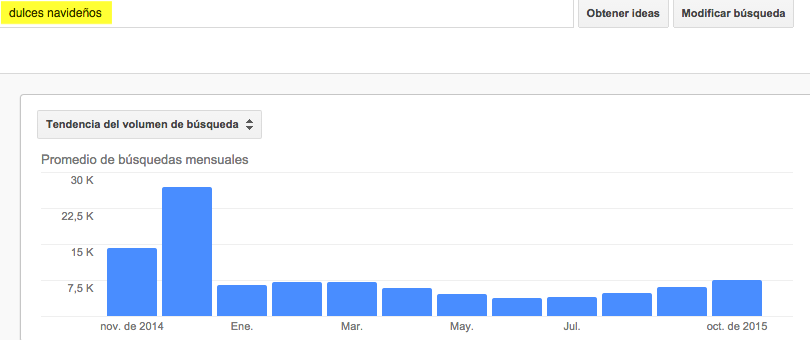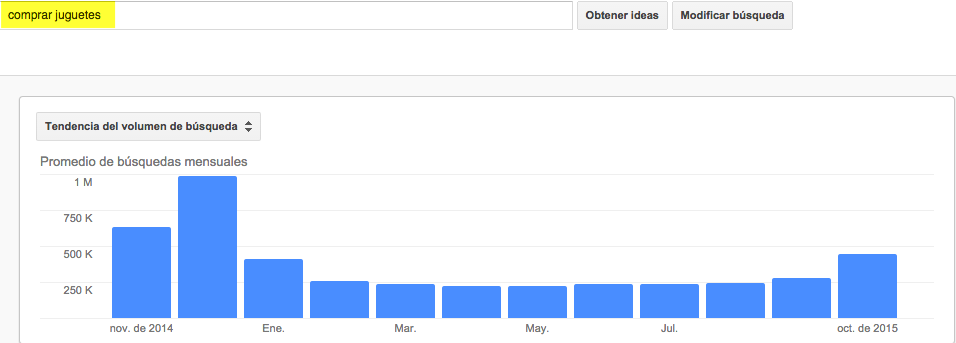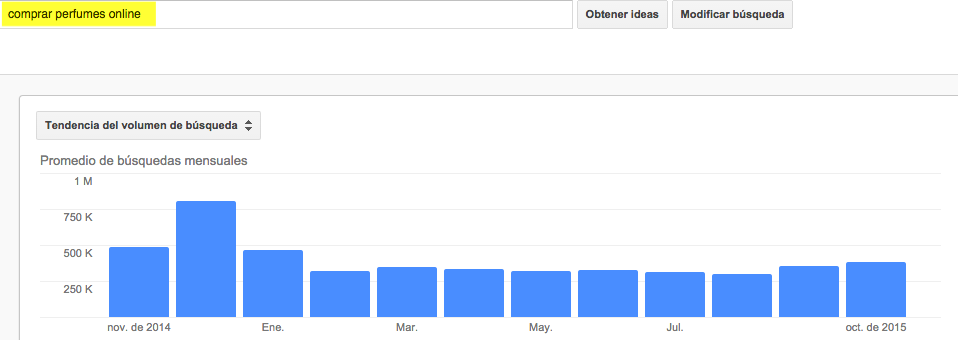Written by Fernando Maciá

The most obvious examples are the searches related to summer and winter vacations, and the most deeply rooted cultural and commercial holidays in each country. In Spain, these could be: Christmas, New Year’s Eve, New Year’s Eve, Epiphany, Mother’s Day, Father’s Day, Valentine’s Day, Carnival, Halloween, etc.
Many products, due to their particular characteristics, are more consumed in one period of the year than in another. This is very evident in those products that are linked to festivities, such as Christmas sweets. Seasonality in consumption is reflected in the volume of searches for keywords that appeal to the product or service.
Some tools such as Google Trends or Google Keyword Plannershow us the volume of searches by month, so that we can observe the seasonality of searches.

The same happens with other terms related to Christmas, such as “buy toys”, although in this case we observe that searches are made even earlier and the increase in searches begins to occur from October onwards.
However, seasonal searches are not only related to products or services that are consumed at a certain time of the year, but also refer to those concepts that correspond to information searches that are carried out preferentially during certain periods of the year. For example, more users search for information on “diets” before summer, or “costume ideas” before Carnival.
Consideration of Seasonal Searches in Traffic Analysis
Sometimes, a bad traffic analysis can lead to attributing increases or decreases in visits to the wrong reasons. It is very important that comparisons of web traffic are made not only for one month compared to the previous month, but also for one month compared to the same month of the previous year. In this way we can analyze traffic variations in context and detect possible seasonal fluctuations typical of the sector.
There is a direct relationship between seasonal searches for the product or service, and the seasonality of the traffic received by the website.
Let’s look at an online perfume store as an example: the keyword “buy perfumes online” corresponds to a seasonal search that is also influenced by Christmas shopping, and as a consequence web traffic experiences a very noticeable growth every December.
How to take advantage of Seasonal Searches
Knowing the seasonality of searches is important for a correct traffic analysis, but also at an earlier stage, when developing the online marketing strategy of any web project.
Detecting seasonal keywords is essential to develop a content strategy and thus develop content that works on these terms early enough to be positioned.
Bearing in mind that SEO works in the medium-long term, we should start working on seasonal keywords in advance if we want to position ourselves in the key dates with the most searches.
In addition, seasonality in searches also influences the price fluctuation of these terms in Google Adwords. The prices per bid increase during periods when there is a higher volume of searches, so these changes will have a significant impact on our budget, which we will have to adjust monthly to achieve the best results.
Finally, seasonal searches can help us define the publication calendar of our content and social media strategy.
References on Seasonal Searches
Keyword Consulting Tools – Fani Sanchez on Human Level’s Blog
How to create a seasonal campaign – AdWords Help




